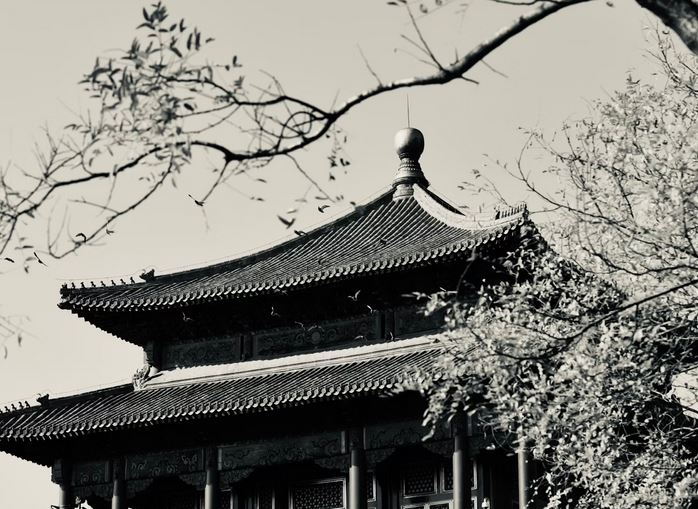Facts About Ancient China: Exploring a Rich History |

|
|
Photo by: Danny Chen |
|
More Ancient Facts: Ancient China, one of the world's oldest civilizations, boasts a rich and complex history spanning millennia. From its early dynasties to its groundbreaking inventions and influential philosophies, ancient China has left an enduring legacy. Here are 12 fascinating facts that offer a glimpse into this remarkable past, followed by some frequently asked questions. The Great Wall Was Built Over CenturiesThe iconic Great Wall of China wasn't built all at once. Construction began as early as the 7th century BC and continued through various dynasties for over 2,000 years, with the most significant sections built during the Ming Dynasty. They Invented PaperWhile the exact origins are debated, the invention of paper is traditionally attributed to Cai Lun during the Eastern Han Dynasty (around 105 AD). This invention revolutionized communication and record-keeping. Gunpowder Originated in ChinaGunpowder was discovered in China during the Tang Dynasty (9th century AD) by alchemists searching for an elixir of immortality. It was initially used for fireworks and later for weaponry. The Terracotta Army Guards an Emperor's TombThe Terracotta Army, a vast collection of life-sized terracotta figures, was discovered near the tomb of China's first emperor, Qin Shi Huang (around 210 BC). This incredible archaeological find showcases the emperor's power and his belief in an afterlife army, as detailed by the Khan Academy. Silk Production Was a Closely Guarded SecretThe process of making silk, a luxurious fabric highly prized around the world, originated in ancient China. For centuries, the Chinese carefully guarded the secrets of silkworm cultivation and silk production. The Silk Road Facilitated Global TradeThe Silk Road was a network of trade routes that connected the East and West for centuries. It facilitated the exchange of goods, ideas, and cultures between China, India, the Middle East, and Europe. Confucianism Shaped Chinese SocietyConfucianism, a philosophy and ethical system developed by Confucius (around 5th century BC), profoundly influenced Chinese society, government, and culture for over two millennia, emphasizing social harmony, filial piety, and respect for hierarchy. They Developed Advanced Agricultural TechniquesAncient Chinese farmers developed sophisticated agricultural techniques, including crop rotation, irrigation systems, and the use of iron tools, which allowed them to support a large population, as discussed in historical texts on Chinese agriculture. The Invention of the Compass Aided NavigationThe magnetic compass, initially used for divination, was later adapted for navigation in ancient China, playing a crucial role in maritime exploration and trade. Tea Has a Long History in ChinaTea originated in China thousands of years ago and became an integral part of Chinese culture, traditions, and even medicine. They Had a Sophisticated BureaucracyAncient China developed a complex bureaucratic system to govern its vast territories. The civil service examination, based on Confucian principles, allowed talented individuals to rise in government based on merit, as explored by scholars of Chinese history. The Concept of Yin and Yang Influenced Their PhilosophyThe concept of Yin and Yang, representing complementary and opposing forces, is a fundamental principle in Chinese philosophy and influenced various aspects of their culture, including medicine, art, and cosmology. Ancient China FAQsSome more questions you might need answered about ancient China! What were the major dynasties of ancient China?Some of the major dynasties of ancient China include the Xia, Shang, Zhou, Qin, Han, Sui, and Tang dynasties, each leaving its unique mark on Chinese history and culture. What was the significance of the Silk Road?The Silk Road was a vital network of trade routes that facilitated the exchange of goods, ideas, and cultural practices between the East and West for centuries, contributing significantly to global interconnectedness. How did Confucianism impact ancient Chinese society?Confucianism provided a moral and ethical framework for ancient Chinese society, emphasizing social harmony, respect for elders and authority, and the importance of education and meritocracy in government. What are some of the key inventions from ancient China?Ancient China is credited with numerous significant inventions, including paper, gunpowder, the compass, and printing technology, among others. Why was the Great Wall of China built?The Great Wall of China was primarily built as a defensive fortification to protect the Chinese states and empires against nomadic invasions from the north. It also served as a means of border control and communication. |